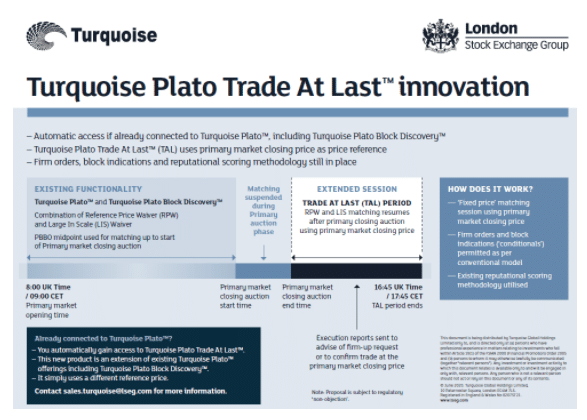
Pushing the Envelope.
Lynn Strongin Dodds talks to Julia Streets, founder of Streets Consulting and host of DiverCity podcast about Covid, consultancy, change and stand up comedy.
Julia Streets knows how to adroitly keep many balls in the air. She is not only the founder of Streets Consulting, but also host of the long-running DiverCity podcast, fintech champion, author, mentor and in her spare time, a stand-up comedian. Having steered through the tragedy of 9/11 and SARs, the havoc caused by the global financial crash and Brexit throughout her varied career, she is no stranger to crisis management but also knows the value of embracing change.
“It is important to take a proactive stance and have a clear message that goes beyond PR,” says Streets. “The essence of a consultant is to be flexible because clients need different things at different times. You need to read the signals and not have rigid structures. In times of uncertainty like this, we found that clients want to have an integrated strategy that can help them navigate the risks but also take advantage of the opportunities that are out there.”
She adds, “Our clients had to pivot and what may have taken years to organise had to be done in a matter of weeks. The business continuity plans that they had in place were often based on invoking a second location which meant when lockdown happened, they had to quickly re-imagine their working practices. This required fresh ideas regardless of their size because everyone was in the same position. People and businesses are incredibly resilient, and our job is to help them build and maintain their industry profile throughout this crisis, into the next. We are focused on supporting sales and growth and to help them take advantage of new opportunities.”
Another reason why Streets Consulting, a business development, marketing and communications consultancy, has been well placed to help clients adapt to the Covid-19 environment is because her team fully understand the positives as well as the travails of working from home. Streets decided on a remote operating model long before it was fashionable when she launched in 2007 and incorporated it a year later when stock markets were crashing and Lehmans had fallen.
“When I started the company, I wanted to be at the sharp end and so I challenged the consulting business model,” she says. “I knew that early stage fintech firms didn’t have a lot of money so decided to create a virtual set up. I brought seasoned and senior people to the table who had PR and marketing strategy experience as well as business development and campaign execution skills who worked across the financial services spectrum. These were also talented people whose options were limited at the time because many had young children or ageing parents that they had to take care of. For me it was all about building a culture focused on client delivery with the right technology and governance in place.”
At the heart of the company is a commitment to strategic thinking and planning, whether it’s to help companies build a brand, launch a new product, reposition themselves, internal communications or skills and training. There is a core team of 13, although people are brought in if there are specialist projects and other skills are needed. They cover the financial services universe and have advised a wide range of firms in the world of capital markets, B2B and payments as well as those operating in specialist technologies including blockchain, artificial intelligence, outsourced trading, cybersecurity and more.
The team may be ensconced in their respective home offices, but before Covid-19 hit, they were firm fixtures at industry events, face-to-face client meetings as well as press briefings where they raised their clients’ profiles but also took time to share the latest trends with a journalist.
The first step on the ladder
Streets first learned her PR ropes at the US-based behemoth Hill & Knowlton where she spent eight years representing a broad range of financial services organisations including Banque Nationale de Paris, Pictet & Cie, GE Capital, GE Equity, Alfa Bank, EFG. She further honed her craft as head of eCommerce division at PR and communications specialist for B2B technology and financial services, Grandfield Communications.
“It was at the other end of the scale and I was able to work with founders of companies who often came from larger organisations and put their own money into the business,” she says. “They were at the cutting edge of technology and I met clients who had such foresight and pedigree.”
Streets next move was as European head of marketing and sales development at global equities agency broker Instinet where she spent around four years responsible for the region’s marketing and communications team and campaigns as well as head of its Independent Research business unit.
“This was the time of the Investment Services Directive and the Myners Review and the company was at the forefront of change offering direct market access, smart order routing and electronic trading.” she says. “I had to think about processes, how to sell and get closer to the client but also how to effectively position campaigns. I was also given my own independent research P&L, which taught me my commercial skills.”
Streets then went on to Atos Euronext Market Solutions (today known as NYSE Technologies) where she split her time between Paris and New York as global head of marketing and communications.
However, in 2006 after roughly 14 years of work, Streets decided it was time for a breather. “I was on the fast track, but I needed to step back and take a break before deciding what my next move would be,” she says. “During this time, I saw a friend perform her cabaret show and that’s when the light went on. It was such a ‘now or never’ realisation. For years, too many people to ignore had said I should try stand up. I knew immediately that if I didn’t do it then, I would run a real risk of reaching retirement without ever having tried.”
The journey did not take her to small venues or clubs but to the Edinburgh Fringe where her marketing skills came in handy. She wrote the show, engaged the support of another actress, hired a director, and secured a venue. “I burnt some shoe leather in trying to convince people to see me,” she adds. You are competing with 8500 other shows and you need a good sales pitch to persuade weary crowds to see your show.”
Although stand-up is still very much part of Streets life, she received a call from Instinet upon her return from Edinburgh. She had not yet formulated the next game plan but it was too good an offer to refuse. “The company was launching Chi-X, the first ever pan-European stock exchange and I was asked if I would like to work alongside the founders as their marketing and communications consultant,” she adds. “This led to launches in Australia and Singapore. They were my first client, so I set up my company. I am incredibly proud that we have never looked for a client. Every engagement has resulted as a direct referral from an existing customer, journalist or industry contact and we continue to receive new business enquiries.”
Giving back
Although her diary is chock full, Streets has found time to be a mentor for Accenture’s FinTech Innovation Lab and The Investment Association’s Velocity Programme and has also mentored for SWIFT’s Innotribe Scheme, Startupbootcamp’s fintech and cybersecurity cohorts, CyLon, the cyber security innovation programme and Anthemis VC’s innovation scheme.
Last year Streets and her team launched a communications confidence building programme ‘Executive Shine’ coaching professionals from across the industry in how to be heard and make their mark in meeting rooms, on conference calls, on stages, panels and as a compelling speaker.
Despite her successes, Streets is well aware that women and other groups are not equally represented in financial services and in industry in general. This is one of the drivers behind her podcast series ‘DiverCity Podcast’ which was launched three years ago, where she interviews senior people on the advancements being made, the gaps that need filling as well as their insights and best practice to help listeners drive change.
“As a gay woman in the City, I was convinced that it would hamper my career when I first started,” she says. “Although we have made huge progress with diversity and inclusion, we still have a long way to go. I didn’t feel discrimination personally at work, but neither was I comfortable or confident to come out for a long time. It’s exhausting to spend your time and energy every day avoiding being asked anything personal and tiptoeing around how you describe your home life. Culture makes a huge difference and that leadership tone is set right at the very top.”
IF YOU’D LIKE TO NOMINATE JULIA (OR ANYONE ELSE) FOR ONE OF THE EUROPEAN WOMEN IN FINANCE AWARDS PLEASE CLICK HERE
©BestExecution 2020
[divider_to_top]

























